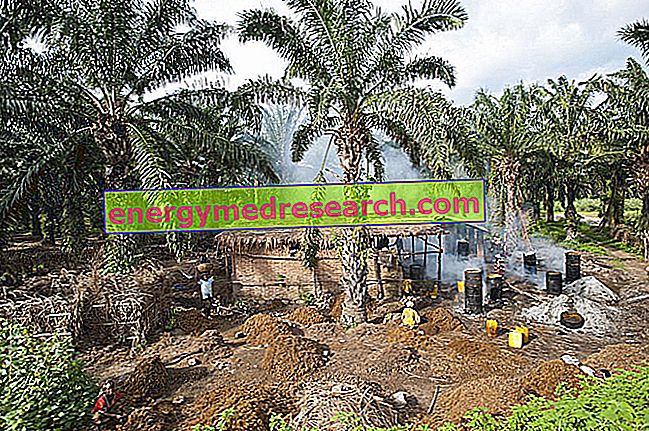
The palm oil industry has had both positive and negative effects on workers belonging to indigenous communities. Palm oil production offers a job opportunity and has been shown to reduce poverty, improve infrastructure and social services.
However, in some cases, oil palm plantations have been developed without the consultation of the occupying tribal peoples, which has generated quite a few conflicts of a social nature.
Moreover, the employment of illegal immigrants in Malaysia has caused much controversy about the working conditions in which they would be placed.
Some social initiatives exploit the cultivation of oil palm as a real strategy for the reduction of collective poverty. An example is that of the palm hybrids of the "UN Food and Agriculture Organization" (FAO) planted in Western Kenya, which are able to improve profitability and therefore the feeding of local populations; or the support of rural development in Malaysia, by the "Federal Land Development Authority" and the "Federal Land Consolidation and Rehabilitation Authority".
The use of palm oil for biodiesel production could compromise food production due to the excessive alternative use of fruits, causing or worsening malnutrition in developing countries. This controversy is also known as "food versus fuel". According to a 2008 report, published by the "Renewable and Sustainable Energy Reviews", palm oil has been declared a sustainable food and biofuel source. The production of biodiesel from palm oil would not represent a threat to the supply of edible oil. According to a 2009 study published in the Environmental Science and Policy Journal, the commercial demand for palm oil could increase in the future with a consequent agricultural expansion that would also support food demand.
Oil palm cultivation is having negative consequences on the natural environment; among these: deforestation, loss of the natural habitat (which threatened some animal species such as the orangutan and the Sumatran tiger) and greater gaseous greenhouse emissions.
Many oil palm plantations have been planted on peat bogs, disrupting the soil which, being no longer able to retain certain gases, favors the expansion of the greenhouse effect.
Some organizations, such as the Roundtable on Sustainable Palm Oil (RSPO), have sought to promote the eco-sustainable cultivation of oil palms. The Malaysian government has pledged to preserve 50% of its total national area in the form of forests. According to research conducted by the "Tropical Peat Research Laboratory", a group that analyzes oil palm cultivation in support of the industrial sector, plantations act as carbon sinks and produce oxygen. According to the "Malaysia's Second National Communication to the United Nations Framework Convention on Climate Change", the plantations contribute to maintaining Malaysia's status due to the positive effect they have on the concentration of carbon dioxide.
Environmental groups such as "Greenpeace" and "Friends of the Earth" oppose the use of palm oil-based biofuels, arguing that deforestation in support of oil palm plantations is more harmful to the climate than the benefits obtained by using biofuel and using palms as carbon sinks.
The RSPO was created in 2004 following concerns raised by non-governmental organizations regarding the environmental impact of palm oil production. The RSPO has established international standards for eco-sustainable production and has created a guarantee label. They are members of the RSPO: certain palm oil producers, environmental groups and certain buyers.
However, palm oil producers who enjoy the "Certified Sustainable Palm Oil" have criticized the organization; this is because, despite having met the RSPO standards and having borne the costs of the certification, the market demand for this kind of product remains rather low. The phenomenon is attributable to the higher cost, which directs buyers towards cheaper products even if they are not certified. In 2011, 12% of the world's palm oil was certified as "sustainable", even though only half of this percentage was awarded the RSPO mark.



